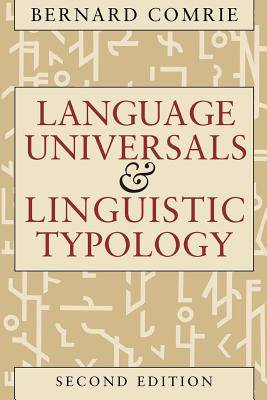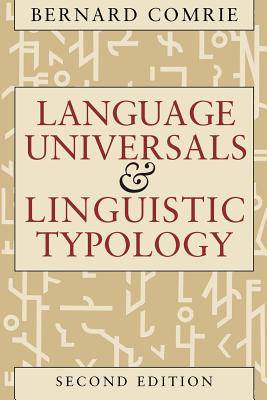
- Afhalen na 1 uur in een winkel met voorraad
- Gratis thuislevering in België vanaf € 30
- Ruim aanbod met 7 miljoen producten
- Afhalen na 1 uur in een winkel met voorraad
- Gratis thuislevering in België vanaf € 30
- Ruim aanbod met 7 miljoen producten
Zoeken
€ 62,95
+ 125 punten
Omschrijving
Since its first publication, Language Universals and Linguistic Typology has become established as the leading introductory account of one of the most productive areas of linguistics-the analysis, comparison, and classification of the common features and forms of the organization of languages. Adopting an approach to the subject pioneered by Greenberg and others, Bernard Comrie is particularly concerned with syntactico-semantic universals, devoting chapters to word order, case making, relative clauses, and causative constructions. His book is informed throughout by the conviction that an exemplary account of universal properties of human language cannot restrict itself to purely formal aspects, nor focus on analysis of a single language. Rather, it must also consider language use, relate formal properties to testable claims about cognition and cognitive development, and treat data from a wide range of languages. This second edition has been revised and updated to take full account of new research in universals and typology in the past decade, and more generally to consider how the approach advocated here relates to recent advances in generative grammatical theory.
Specificaties
Betrokkenen
- Auteur(s):
- Uitgeverij:
Inhoud
- Aantal bladzijden:
- 275
- Taal:
- Engels
Eigenschappen
- Productcode (EAN):
- 9780226114330
- Verschijningsdatum:
- 15/07/1989
- Uitvoering:
- Paperback
- Formaat:
- Trade paperback (VS)
- Afmetingen:
- 152 mm x 229 mm
- Gewicht:
- 362 g

Alleen bij Standaard Boekhandel
+ 125 punten op je klantenkaart van Standaard Boekhandel
Beoordelingen
We publiceren alleen reviews die voldoen aan de voorwaarden voor reviews. Bekijk onze voorwaarden voor reviews.











